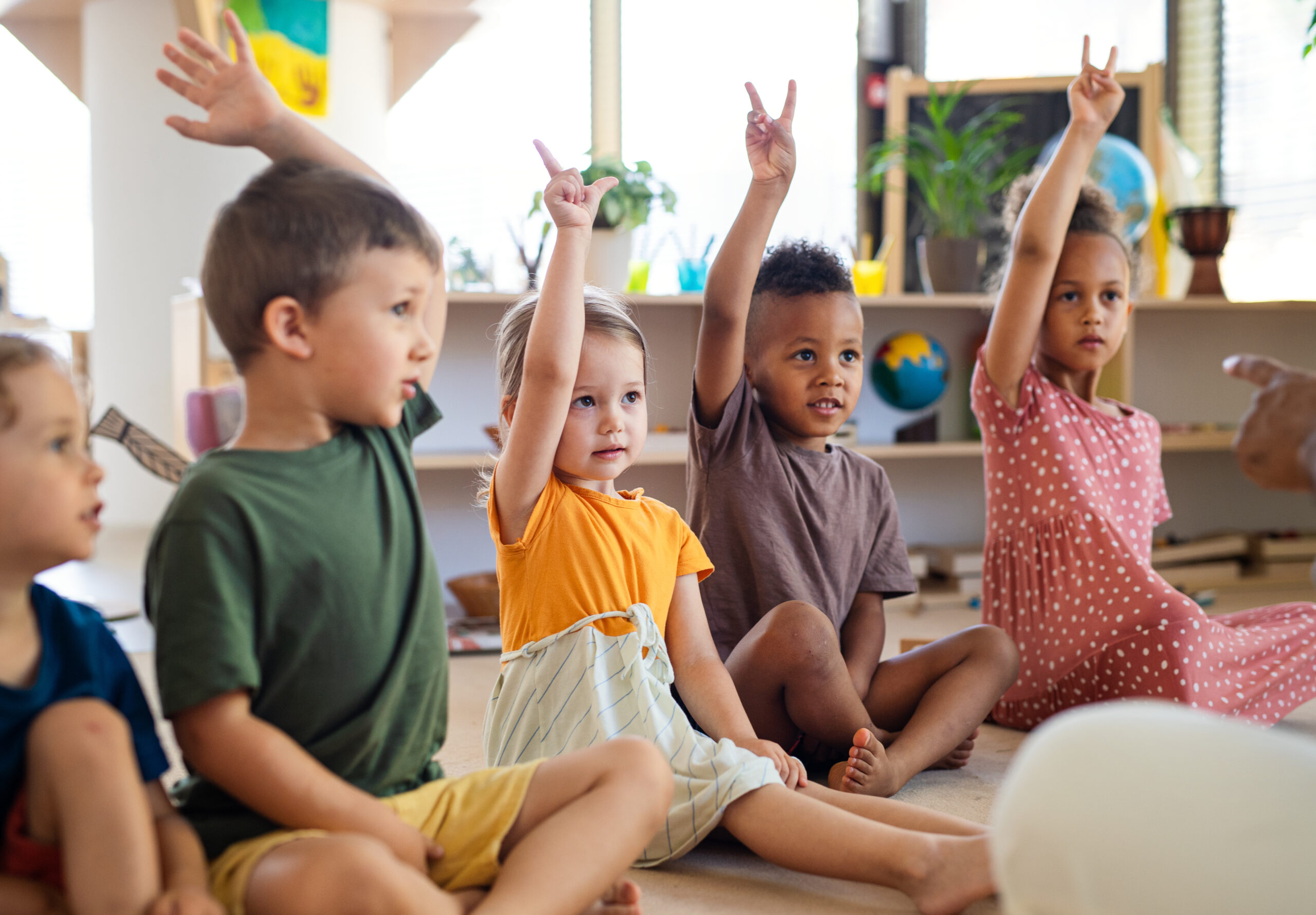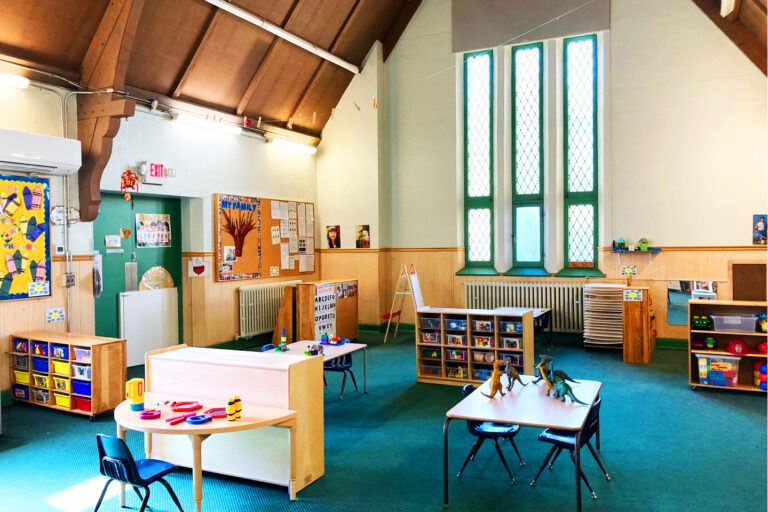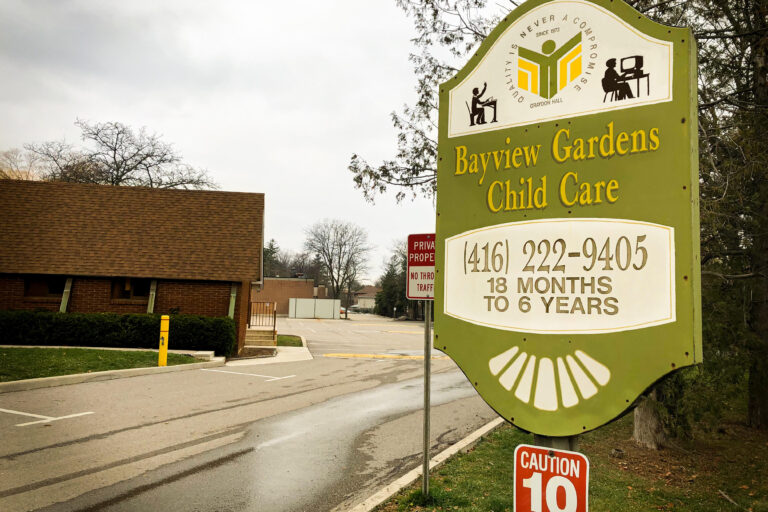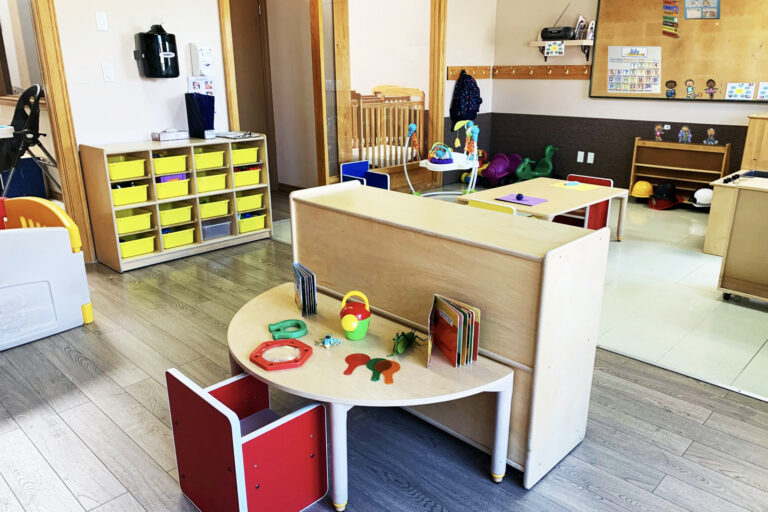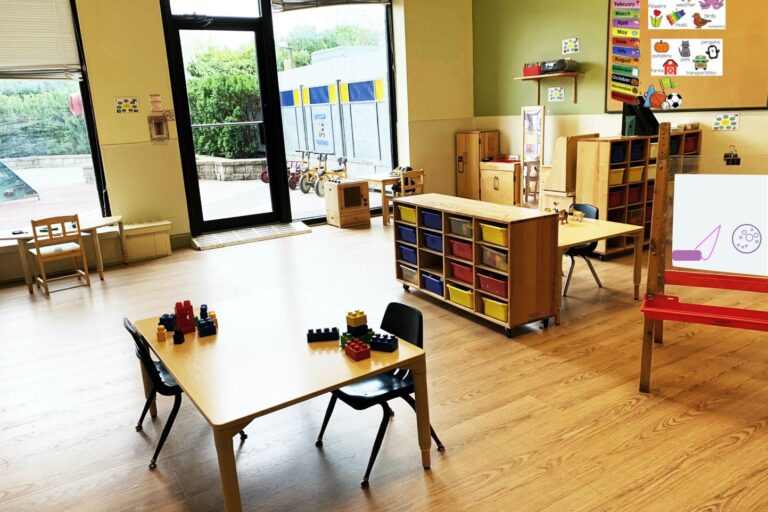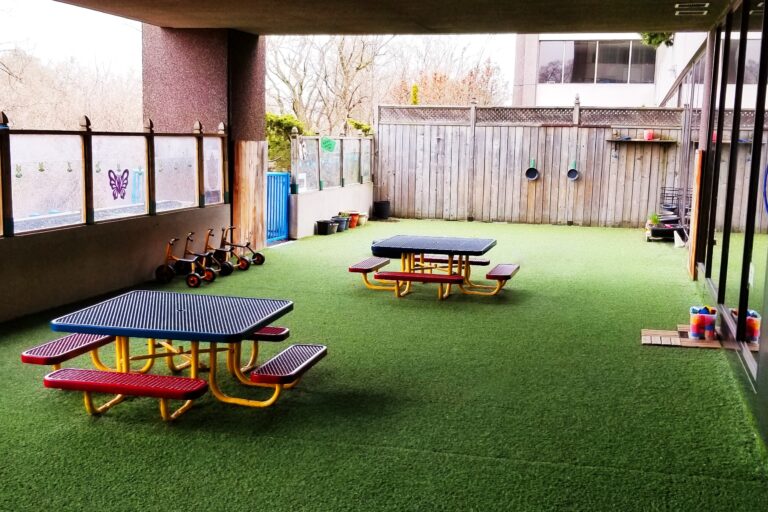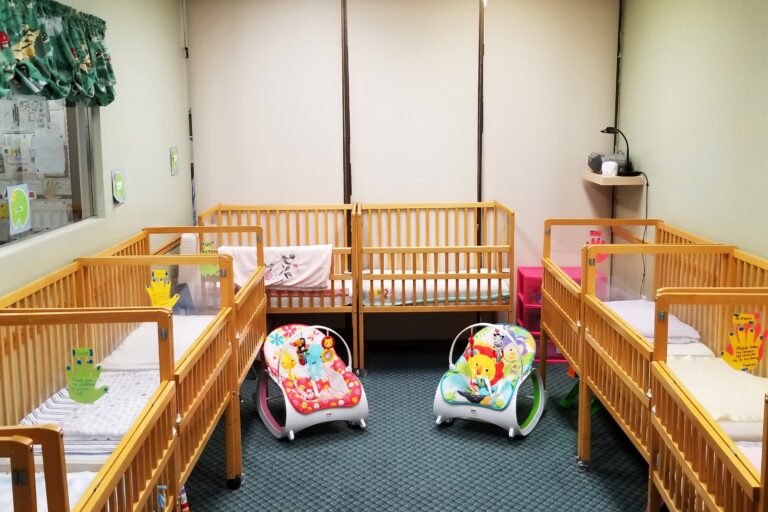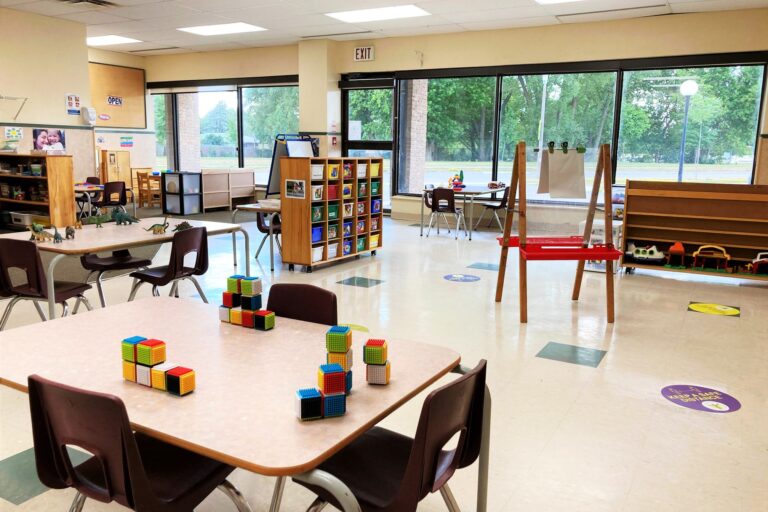Preschool children are provided with an environment designed to allow them to learn, explore, communicate and understand new concepts. The children learn to negotiate with their peers, begin to play cooperatively and expand their knowledge base through a program that offers play-based and guided learning.
Key Features
- Teacher to Child Ratio: 1 teacher for every 8 children, providing freedom to explore while teachers guide and support learning.
- Play-Based and Guided Learning: Preschoolers engage in a mix of play-based and teacher-guided activities to develop cognitive, social, emotional, and physical skills.
- Parent-Teacher Collaboration: Weekly observations are documented to track developmental progress and plan individualized activities, with input from parents to meet emerging milestones.
Daily Routines and Care
Children learn to solve problems, think critically and creatively, and interact socially through imaginative play, art, construction, and fine motor activities.
Within the play-based setting, teachers organize activities that promote language, math, science, fine motor, and self-help skill development, allowing children to explore while deepening their understanding.
The outdoor play space is used to extend social and physical development through activities like socialization, science and nature discovery, and imaginative play.
Developmental Focus Areas
- Preschoolers explore favorite stories, finger plays, puppets, felt board stories, and theater arts.
- They learn the alphabet and the relationship between letters and words using Jolly Phonics to recognize sounds and actions.
- Children progressively learn to express ideas orally and organize written materials.
- Children build problem-solving and critical thinking skills through creative and social play.
- Play-based learning opportunities foster a love for learning and encourage the exploration of new concepts.
- Social skills are enhanced through group projects and collaborative activities.
- Children experiment with various art media, such as paint, crayons, and glue, expressing themselves creatively and developing a sense of artistic style.
- Activities such as cooking and simple experiments foster curiosity and teamwork.
- Preschoolers develop fine motor coordination through tasks like drawing, tracing, cutting, and using tongs.
- Preparation for writing includes forming directional lines and coloring within boundaries.
- Daily physical activities promote coordination, teamwork, and creativity through dance, movement, and games.
- Children learn to listen, follow directions, and build a foundation of sportsmanship and teamwork.
- Preschoolers practice self-help skills like zipping, buttoning, putting on shoes, and beginning to tie shoelaces.
- Real-life scenarios, such as setting the table, encourage independence and responsibility.
- Children learn number recognition and counting through interactive methods like flashcards, games, and tracing.
- Mathematical concepts such as size, height, weight, geometric shapes, and currency are explored.
- Preschoolers are introduced to the concept of time and develop basic counting patterns.
- Preschoolers discover and explore the world around them, with a focus on the changing seasons and the uniqueness of nature.
- Science experiments and hands-on learning encourage curiosity and a deeper understanding of natural processes.
Our Commitment
- GHNS recognizes that each age group is unique. Our goal is to enhance the keen sense of wonder, capture the enthusiasm to learn, and develop self-confidence as children achieve each milestone.
- By providing a structured yet flexible approach to early childhood education, we aim to support each child’s development in a holistic and nurturing environment.

